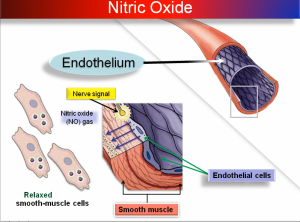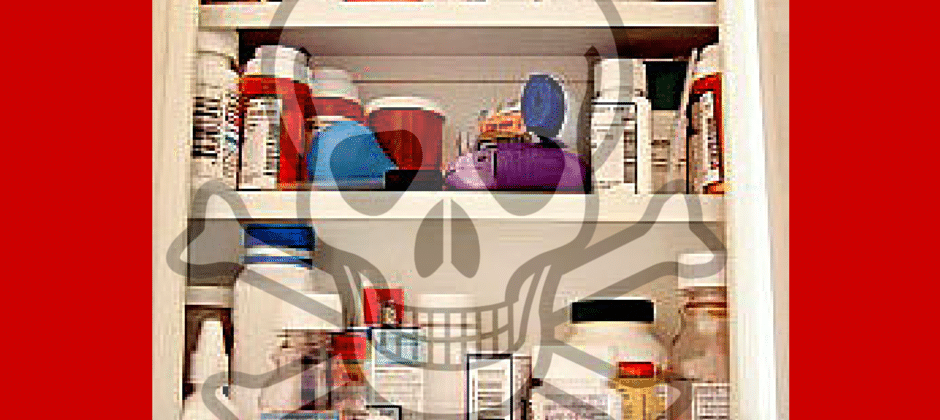Are These Over The Counter Meds in Your Medicine Cabinet Harming You?
A large study links popular class of drugs to an elevated risk of heart attack.
Are you at risk?
or is there a deeper commonly overlooked issue?
Some heartburn drugs may boost risk of heart attack, study finds
A large data-mining study carried out by investigators at the Stanford University School of Medicine has linked a popular class of heartburn drugs to an elevated risk of heart attack.
Proton-pump inhibitors, or PPIs, are among the world’s most widely prescribed drugs, with $14 billion in annual sales. They are effective at lowering the acidity of the stomach, in turn preventing heartburn, a burning sensation in the chest that occurs when stomach acid rises up into the esophagus. In any given year, more than 20 million Americans—about one in every 14—use PPIs such as omeprazole (trade name Prilosec) for heartburn, also known as acid reflux or gastroesophageal reflux disease.
via Some heartburn drugs may boost risk of heart attack, study finds.
‘The association we found with PPI use and increased chances of a subsequent heart attack doesn’t in and of itself prove causation,’ said the study’s lead author, Nigam Shah, Ph.D., MBBS, an assistant professor of biomedical informatics and assistant director of the Stanford Center for Biomedical Informatics Research. But, he said, the study combed through electronic health records of nearly three million people and crunched trillions of pieces of medical data, raising concerns that should be taken seriously, especially now that PPIs are available over the counter.
To further validate the association, they turned to an ongoing prospective, longitudinal study of 1,500 patients with chest pain, shortness of breath or abnormal stress-test results, conducted by Stanford in collaboration with Mount Sinai Medical Center in New York City. As a routine part of this study, patients are asked whether they are using PPIs.
To ensure that they would spot adverse drug effects if there were any, Shah, Leeper and their colleagues looked for not only heart attacks but cardiac arrest, stroke and other bad outcomes. They found that in this study population, PPI use more than doubled the risk of a patient’s suffering a subsequent major adverse cardiovascular event.
A hypothesis put forth in 2013, when a study in Circulation by John Cooke, M.D., Ph.D., a professor of cardiovascular medicine at Stanford, proposes a connection of these heartburn class of drugs (PPIs) causes a chain reaction of biochemical reactions that led to reduced levels of nitric oxide in endothelial tissue. The wall of our arteries are lined with endothelial tissue.
According to the American Heart Association Journal Circulation:
The roughly 100,000 billion endothelial cells in our arteries and veins protect us against atherosclerosis and thrombosis. A major weapon of endothelial cells to fight heart disease is a endothelial nitric oxide enzyme that generates the protective molecule nitric oxide.
Endothelial cells are the thin layer of cells that line the interior surface of all blood vessels. It is sometimes referred to as the endothelium. It’s important to note that these cells line the entire circulatory system from the heart all the way down to the smallest capillary. When added up, the volume of these endothelial cells would cover the surface area of 8 tennis courts and weigh as much as the liver. That’s amazing since the endothelium is only one cell thick and can’t be seen by the human eye.

According to WebMD,
Stress and lack of sleep can increase acid production and can cause heartburn. And now new studies are showing that stress is an independent risk factor for heart disease and heart attacks.
Negative effects of the hormone cortisol (a stress hormone) on the inner lining of blood vessels, the endothelium, may explain how stressful events trigger heart attacks and other cardiovascular problems, according to a new study in the July 19, 2005, issue of the Journal of the American College of Cardiology.
This leads to the question, were the patients in the study predisposed to heart disease and heart attack because of stress?
In any case learning to cope with stress would have reduced the chances of acid reflux and heartburn medications addressing one of the significant root causes of heartburn and heart disease.
Meanwhile, the study results should give clinicians and patients pause when deciding whether to take these medications—particularly because they’re so often taken for far longer time periods than the label recommends.
Some natural remedies for acid reflux and heartburn.




